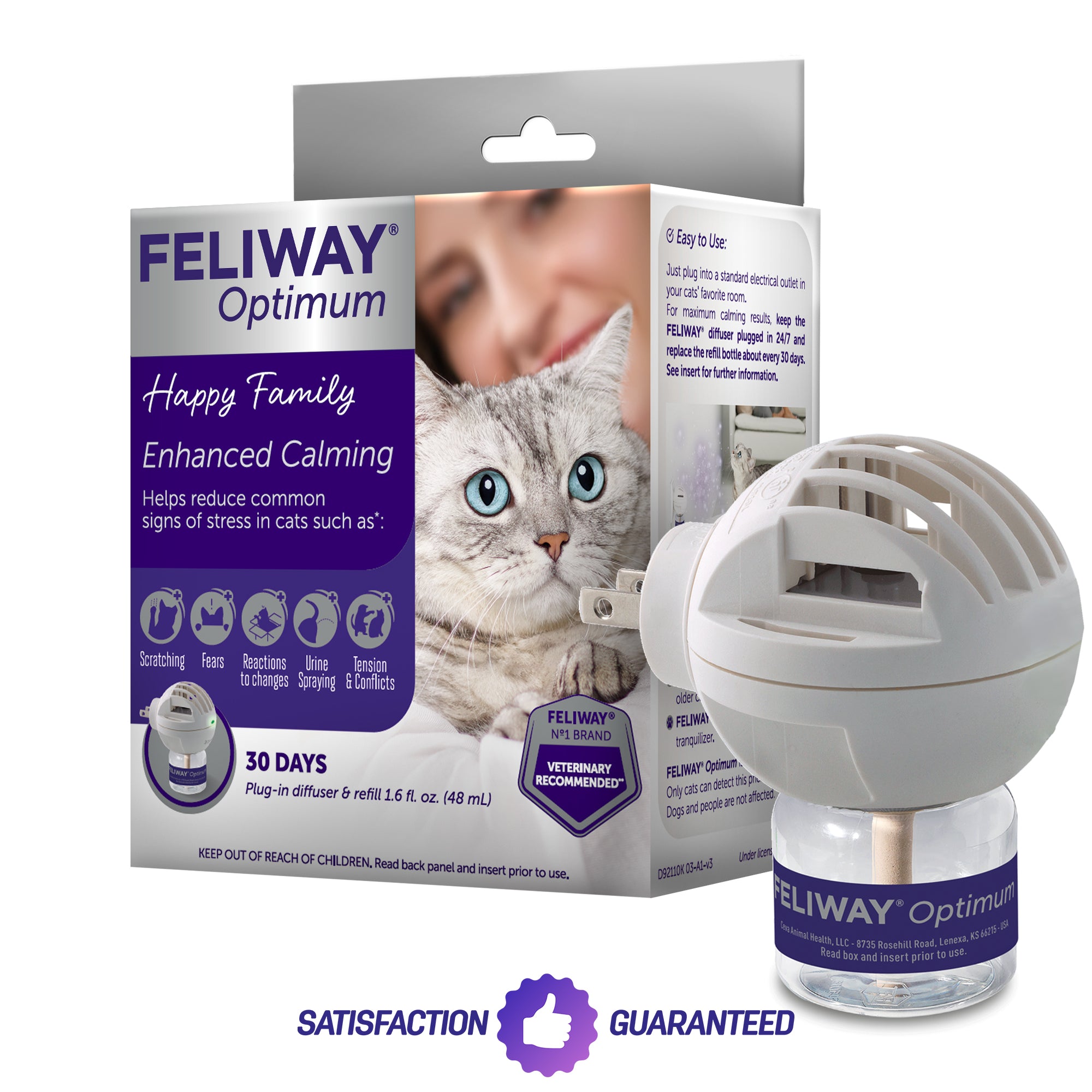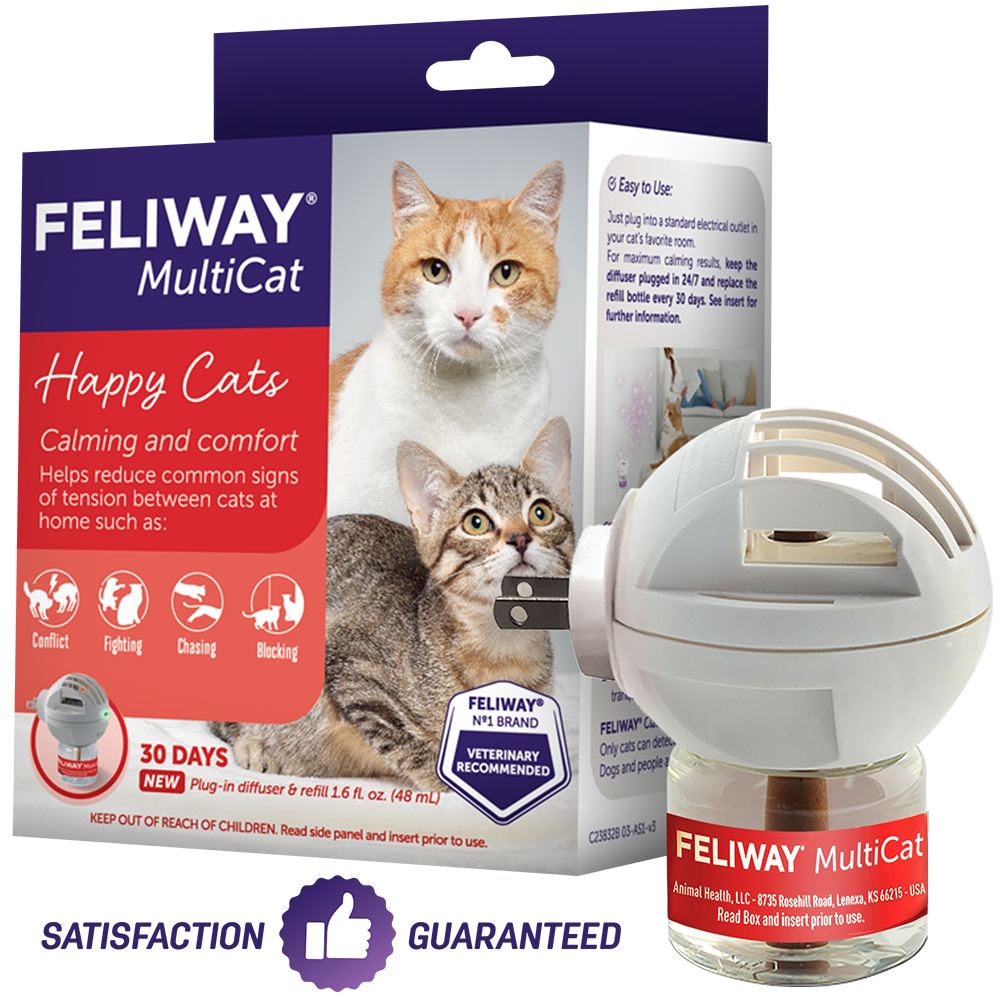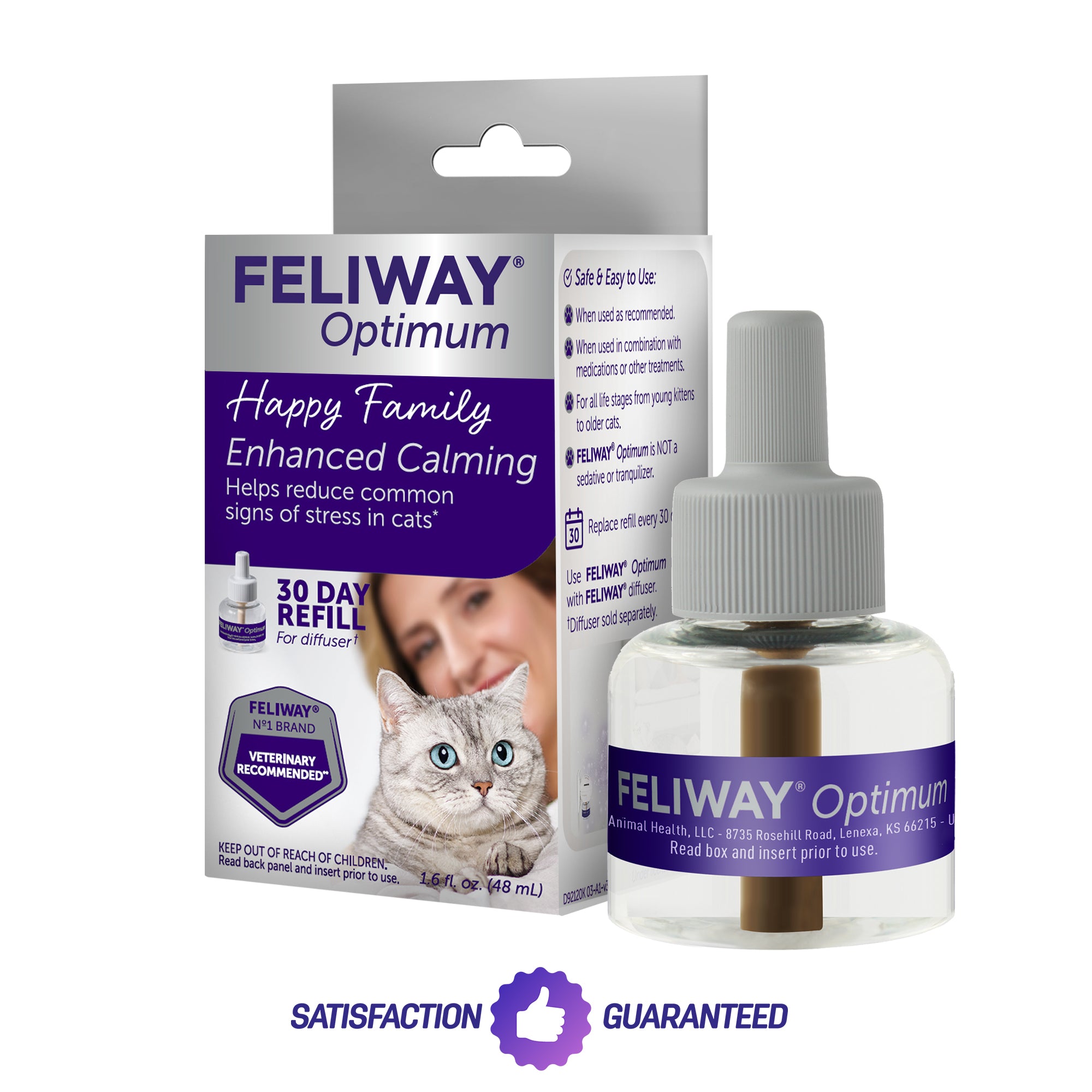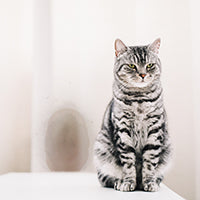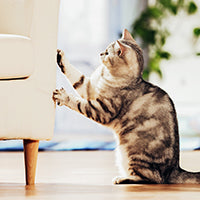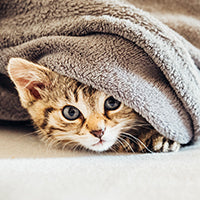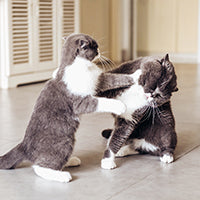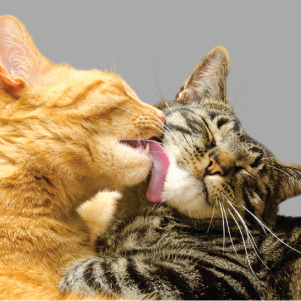Cat Scared of Guests? Create a Relaxing Environment at Home

Do you find yourself asking ‘why is my cat hiding?’ when guests visit your home? If your cat is hiding or running away from visitors, this is a clear sign that your feline friends aren't pleased by these new arrivals. But there’s no need to worry, because in this blog we’ll take you through some of our best tips to ensure that you’re creating a relaxing environment so your cat will always feel at ease in their space.
Designate a Safe Zone
If your cat is scared of guests, their initial reaction will be to keep a distance between them and the visitor. This allows them to watch for a while before deciding what to do next. You may often find that your cat is hiding in the same place when you have guests around. This is because they have moved away and found somewhere that they deem safe to be.
If you know that your furry friend has a favorite spot in the house or a space they usually retreat to, you can create a safe zone in that area. In this safe zone, make sure you include:
- Food
- Water
- Litter tray
- Resting place
- Toys/activities, like a lick mat
- FELIWAY® Optimum
You know your cat better than anyone else, so to create a relaxing safe zone, fill it with all the things they’ll need. For those guests staying for more than a weekend, you can use FELIWAY® Optimum. The pheromone complex provides your cat with enhanced serenity for up to 30 days, helping them feel more secure even when there are visitors in the house.

Cats love the predictability of a routine, so any change to what they know best can be unsettling. Due to their highly developed survival instinct, it is completely natural for your cat to be wary of people who are unknown to them as, in their eyes, they could be a potential threat.
Visitors can also change which rooms a cat can and can’t access, which can lead to your cat hiding somewhere different that feels safer. Our top tip here is to make sure that your cat has a familiar place to hide, somewhere they will not be disturbed. This will give them time and room to decide whether they would like to come and investigate, or if they would rather stay alone.
To help your scared cat, try to keep their routine as normal as possible when guests come over. For example, do your best to keep your regular playtime schedule and feed your cat at their usual time so they can keep a familiar routine.
As well as sticking to a routine, it’s important to be calm, gentle, and predictable around your cat. If you force them to interact with guests, this pushes them out of their comfort zone and can make them retreat even more. It’s important to show patience and give them the choice to interact with visitors or not.

Gradually Introduce Your Visitors
To help a cat scared of visitors, you should start by introducing guests to your house gradually. Cats can often feel overwhelmed if you try to introduce too many people to them at once. Introducing people one at a time allows your cat to build trust with and accept new people. This is the same for kittens, as introducing them to a variety of people gradually and through short interactions can help them get used to people coming in and out of the home.
Some of the things you can do include:

Encourage Quiet Introductions
When introducing guests to your cat, it’s also important to let them approach in their own space. It is best to ask your guests to sit back and allow the cat to go to them first. Large and sudden movements from visitors could scare your cat.
Advising them not to look at the cat too much will create a more comfortable environment for them to come and investigate. A good tip is to slow blink as it shows friendly intentions. This understated approach is much less confrontational, and you’ll notice that your cat will appreciate having their own space to do as they please.
Cats tend to hide from guests when they make a lot of noise because it can scare them. So, as well as asking your guests to have a relaxed disposition, having them use a quiet and calm voice will help your cat to feel more relaxed when they’re being introduced to new people.
You should also consider your cat's temperament when introducing them to visitors. If, as a kitten, your cat was to socialize with many people, they may not be so bothered by your guests. However, if your cat is naturally more timid, it may take longer for them to feel comfortable enough to make contact. Don’t try to speed up the process, as it’s a lot more effective if you leave your cat to make their own choices.
Use FELIWAY to Create a Reassuring Space
For your scared cat, you can use FELIWAY® Classic or FELIWAY® Optimum to create a reassuring space in the home. Both products can help create a relaxing environment at home for your cat. When a cat is scared or unsettled, they may show signs other than hiding, such as scratching furniture or urine spraying. FELIWAY® is here to help reduce common signs of feline stress.
FELIWAY® Classic is a great solution for supporting your cat during short-term events, such as a party or a change at home. Simply plug the diffuser into a socket in your cat's favorite room for a couple of days before your guests arrive. This will allow you to create a reassuring atmosphere for your cat, helping you worry less as you prepare for the visit.
For those guests staying for a bit longer, use FELIWAY® Optimum. The pheromone complex provides your cat with enhanced serenity for up to 30 days, helping them feel more secure even when there are different people in your home.
If you would like to know more about how FELIWAY® can help you create a more relaxing environment in your home, get in touch. You can also stay up to date with all our latest updates by signing up to our newsletter.
